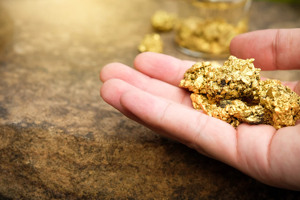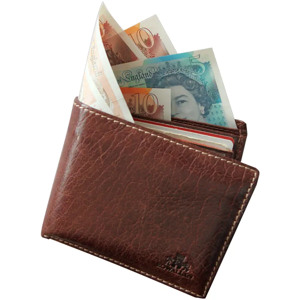Tavex uses cookies to ensure website functionality and improve your user experience. Collecting data from cookies helps us provide the best experience for you, keeps your account secure and allows us to personalise advert content. You can find out more in our cookie policy.
Please select what cookies you allow us to use
Cookies are small files of letters and digits downloaded and saved on your computer or another device (for instance, a mobile phone, a tablet) and saved in your browser while you visit a website. They can be used to track the pages you visit on the website, save the information you enter or remember your preferences such as language settings as long as you’re browsing the website.
| Cookie name | Cookie description | Cookie duration |
|---|---|---|
| tavex_cookie_consent | Stores cookie consent options selected | 60 weeks |
| tavex_customer | Tavex customer ID | 30 days |
| wp-wpml_current_language | Stores selected language | 1 day |
| AWSALB | AWS ALB sticky session cookie | 6 days |
| AWSALBCORS | AWS ALB sticky session cookie | 6 days |
| NO_CACHE | Used to disable page caching | 1 day |
| PHPSESSID | Identifier for PHP session | Session |
| latest_news | Helps to keep notifications relevant by storing the latest news shown | 29 days |
| latest_news_flash | Helps to keep notifications relevant by storing the latest news shown | 29 days |
| tavex_recently_viewed_products | List of recently viewed products | 1 day |
| tavex_compare_amount | Number of items in product comparison view | 1 day |
| Cookie name | Cookie description | Cookie duration |
|---|---|---|
| chart-widget-tab-*-*-* | Remembers last chart options (i.e currency, time period, etc) | 29 days |
| archive_layout | Stores selected product layout on category pages | 1 day |
| Cookie name | Cookie description | Cookie duration |
|---|---|---|
| cartstack.com-* | Used for tracking abandoned shopping carts | 1 year |
| _omappvp | Used by OptinMonster for determining new vs. returning visitors. Expires in 11 years | 11 years |
| _omappvs | Used by OptinMonster for determining when a new visitor becomes a returning visitor | Session |
| om* | Used by OptinMonster to track interactions with campaigns | Persistent |
| Cookie name | Cookie description | Cookie duration |
|---|---|---|
| _ga | Used to distinguish users | 2 years |
| _gid | Used to distinguish users | 24 hours |
| _ga_* | Used to persist session state | 2 years |
| _gac_* | Contains campaign related information | 90 days |
| _gat_gtag_* | Used to throttle request rate | 1 minute |
| _fbc | Facebook advertisement cookie | 2 years |
| _fbp | Facebook cookie for distinguishing unique users | 2 years |
Ghana's Gold Rush Causes Environmental Disaster

Ghana, once known as the Gold Coast due to its abundant gold reserves, is now facing an environmental catastrophe caused by illegal mining operations known as “galamsey.”
While the country remains one of the world’s largest gold exporters, the rapid rise of illegal mining has had devastating consequences on both the environment and local communities.
This article looks into the reasons behind the gold rush, its effects on the land, water, and people, and what can be done to address the growing crisis.
What is Galamsey?
The term “galamsey” is derived from the phrase “gather them and sell,” referring to the informal and often illegal gold mining practices prevalent in Ghana.
What began as a small-scale activity, mostly involving manual labor, has evolved into a more organised and destructive operation, often driven by powerful business interests and fueled by rising global gold prices.
The Scale of the Gold Rush

Global Gold Prices and Local Economies
With global demand for gold increasing, many rural communities in Ghana have turned to illegal mining as a quick source of income. The gold rush has drawn both local entrepreneurs and international players, particularly from China. This inflow of foreign investment has converted galamsey from a small-scale activity to a multimillion-dollar industry.
For many Ghanaians, the attraction of earning large sums of money through illicit mining is irresistible. In extreme situations, miners might earn up to 2,000 cedis (about $125) every week, which is significantly more than the country’s average monthly salary for teachers. Unfortunately, the quest of money comes at a high cost to the environment and public health.
Environmental Consequences of Illegal Gold Mining

One of the most visible impacts of galamsey is the destruction of Ghana’s forests and farmlands. Illegal miners use excavators and bulldozers to clear large tracts of land, stripping away topsoil and leaving behind barren, degraded landscapes.
According to Ghana’s Forestry Commission, over 4,700 hectares of land have been destroyed in just seven of the country’s 16 regions
Water Pollution in Major Rivers
The Pra River, one of Ghana’s greatest rivers, has become a symbol of the environmental damage caused by illegal mining. The river, which was once a clean and vibrant ecology, has been changed into a muddy, yellow-brown canal, so polluted that local artist Israel Derrick Apeti, popularly known as Enil Art, can use the water as paint for his artwork.
The pollution is largely due to the use of mercury and cyanide in the gold extraction process
These toxic chemicals are released into the water, posing a severe threat to both aquatic life and human health.
Mercury, in particular, can remain in water sources for up to 1,000 years, contaminating fish and crops irrigated with the polluted water. This has led to widespread health issues among communities living near mining sites, with many reporting respiratory problems and skin diseases.
The Human Impact

While the environmental repercussions of galamsey are catastrophic, the human cost is equally significant. Local farmers, who formerly relied on clean rivers to irrigate their crops, are now struggling to locate adequate water.
Some farmers have been forced to abandon their farms entirely when illegal miners encroach on their land, buy out cocoa estates, or use intimidation techniques to drive them out.
Personal Stories from Affected Communities
One rice farmer from the Ahafo region spoke with the BBC about her hardship, noting that she could no longer utilise her neighbouring river for irrigation owing to pollution.
“I have to set up a whole plant that involves digging deep to find water, which is very expensive,”
she said, afraid that the situation may worsen if those responsible for illegal mining are not held accountable.
Government and Corporate Responses
The Ghanaian government has made several attempts to curb illegal mining, including arrests and the destruction of mining equipment. However, these efforts have largely been ineffective, as miners often return to the sites at night to resume operations.
Some critics argue that the lack of enforcement is due to corruption and political motivations, as local politicians and businesspeople are believed to be complicit in the illegal activities.
The Role of Local Authorities and Politicians
Ghana’s President, Nana Akufo-Addo, has committed to solve the issue, including deploying naval vessels to patrol waterways and prevent unlawful mining. However, many people remain sceptical of the government’s commitment to resolving the issue, as certain politicians rely on the support of mining communities to win elections. Without immediate action and a crackdown on individuals who fund illicit enterprises, the situation is unlikely to change.
Social Movements and Protests

In reaction to the environmental devastation caused by galamsey, various social movements in Ghana have developed, asking for an end to illicit mining practices. Demonstrators have taken to the streets of Accra, urging the government to adopt more active measures to protect the country’s natural resources.
The hashtags #stopgalamseynow and #freethecitizens have gained traction on social media, mobilising young people in Ghana and abroad to join the fight against illegal mining
Cultural Impact of the Protests
Artists and musicians have also contributed significantly to increasing awareness about the issue. Israel Derrick Apeti, the artist who painted with filthy water from the Pra River, utilised his work to emphasise the environmental damage caused by galamsey.
Musicians such as Black Sherif and Stonebwoy have addressed the issue during their performances, using their platforms to fight for change.
Economic Consequences for Ghana

The rise of illegal gold mining has not only harmed the environment but also affected Ghana’s agricultural industry, particularly cocoa production. The Ghana Cocoa Board reported that over 19,000 hectares of cocoa farmland had been destroyed by illegal mining, leading to a decline in cocoa output.
As one of the world’s largest cocoa exporters, this decline could have significant economic consequences for the country, impacting both local farmers and the global chocolate industry.
What Needs to Be Done?
To address the galamsey catastrophe, rapid action is required on both the local and international levels. The Ghanaian government must intensify its enforcement efforts to hold those responsible for unlawful mining accountable. Furthermore, foreign corporations that buy gold from Ghana must adhere to responsible sourcing procedures, ensuring that their supply chains do not facilitate unlawful mining operations.
The Role of International Communities
Foreign governments and international organisations also have a role to play in addressing the crisis
By supporting initiatives that promote sustainable development and environmental protection, the global community can help Ghana find a balance between economic growth and environmental sustainability.
Key Takeaways
Ghana’s gold rush has provided wealth for some, but at a high cost to the environment and local populations. The illegal mining industry has destroyed forests, poisoned waterways, and left farmers struggling for survival.
While attempts are being made to slow the devastation, much more must be done to conserve Ghana’s natural resources and secure a sustainable future for everyone.

















